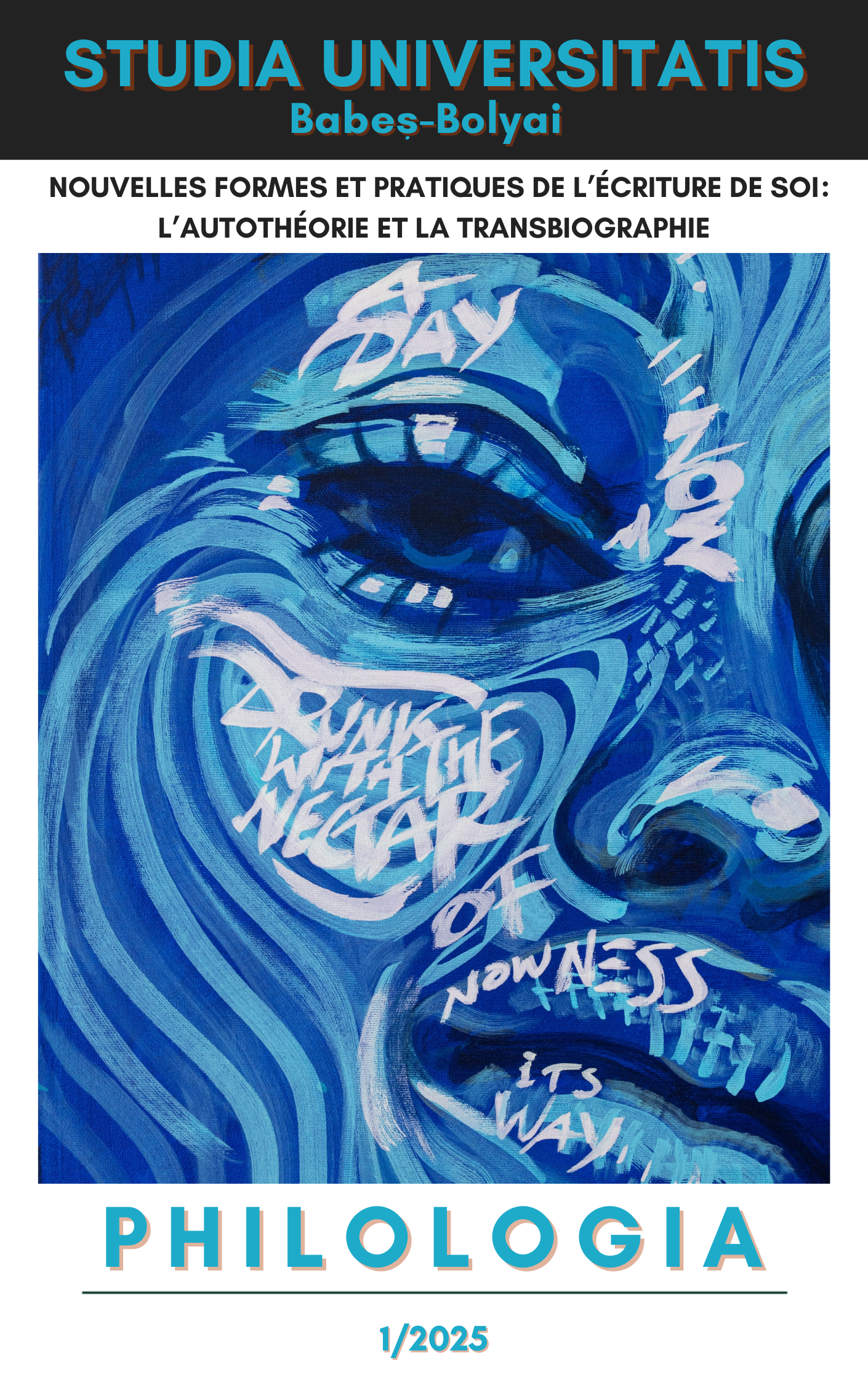« TOUT CECI DOIT ÊTRE CONSIDÉRÉ COMME DIT PAR UN PERSONNAGE DE ROMAN ». PHILIPPE FOREST : ÉCRIRE ET THÉORISER LE ROMAN D’UNE VIE
DOI:
https://doi.org/10.24193/subbphilo.2025.1.03Keywords:
grief writing, contemporary French novel, bereavement, denialAbstract
“All this must be considered as said by a character in a novel”. Philippe Forest: Writing and Theorising the Novel of a Lifetime. The aim of our contribution is to analyse Philippe Forest’s theoretical discourse in the light of a reflection on the transformations undergone by the contemporary novel in the face of the experience of loss and death of others. Our paper focuses on Forest’s innovative positions and on the objections he raises to the evidence regarding the novelization of the experience of mourning. At the same time, we seek to emphasize the peculiarities of the construction of the same character that runs through all Philippe Forest’s novels of mourning, namely that of the grieving father, who is reformulated each time to express mourning in a different and renewed way.
REZUMAT. „Toate acestea trebuie privite ca fiind spuse de un personaj de roman”. Philippe Forest: scrierea și teoretizarea romanului unei vieți. Miza articolului este de a analiza discursul teoretic al lui Philippe Forest în lumina unei reflecții asupra transformărilor suferite de romanul contemporan confruntat cu experiența pierderii și morții unei ființe iubite. Articolul își propune să evidențieze atitudinea inovatoare a lui Forest în câmpul literaturii franceze și obiecțiile pe care acesta le ridică în fața provocărilor teoretice privind transformarea experienței doliului în literatură. În același timp, articolul urmărește să sublinieze particularitățile construcției aceluiași personaj care traversează toate romanele de doliu ale lui Philippe Forest, și anume cel al tatălui îndurerat, care este reformulat de fiecare dată pentru a exprima doliul într-un mod diferit, reînnoind astfel spațiul literar.
Cuvinte-cheie: scriitură de doliu, roman francez contemporan, pierdere, negare
Article history: Received 6 January 2025; Revised 3 March 2025; Accepted 9 March 2025; Available online 25 March 2025; Available print 30 April 2025.
References
Barthes, Roland. 2009. Journal de deuil. Paris : Seuil/IMEC.
Blanchot, Maurice. 1980. L’écriture du désastre. Paris : Gallimard.
Derrida, Jacques. 2004. « La pharmacie de Platon. » In Platon : Phèdre, 254-401. Paris : Flammarion.
De Toledo, Camille. 2020. Thésée, sa vie nouvelle. Paris : Verdier.
Gomel, Elana. 2014. Narrative Space and Time. Representing Impossible Topologies in Literature. New York/Londres: Routledge.
Fournier, Lauren. 2021. Autotheory as Feminist Practice in Art, Writing, and Criticism. Cambridge (MA) : MIT Press. eBook.
Espitallier, Jean-Michel. 2018. La première année. Paris : Éditions Inculte.
Forest, Philippe. [1997] 1998. L’enfant éternel. Paris : Gallimard.
Forest, Philippe. 2004. Sarinagara. Paris : Gallimard.
Forest, Philippe. [2007] 2008. Tous les enfants sauf un. Paris : Gallimard.
Forest, Philippe. [2007] 2009. Le nouvel amour. Paris : Gallimard.
Forest, Philippe. [1999] 2013. Toute la nuit. Paris : Gallimard.
Forest, Philippe. 2019. Je reste roi de mes chagrins. Paris : Gallimard.
Forest, Philippe. 2023. Rien n’est dit. Moderne après tout. Paris : Seuil.
Gefen, Alexandre. 2017. Réparer le monde. La littérature française face au XXIe siècle. Paris : Éditions Corti.
Gefen, Alexandre. 2021. L’idée de littérature : de l’art pour l’art aux écritures d’intervention. Paris : Éditions Corti.
Hugo, Victor. [1856] 2022. Les contemplations. Paris : Gallimard.
Rabaté, Dominique. 2005. « Introduction. » In Deuil et littérature, édité par Pierre Glaudes et Dominique Rabaté, 7-12. Pessac : Presses Universitaires de Bordeaux.
Downloads
Published
How to Cite
Issue
Section
License
Copyright (c) 2025 Studia Universitatis Babeș-Bolyai Philologia

This work is licensed under a Creative Commons Attribution-NonCommercial-NoDerivatives 4.0 International License.



